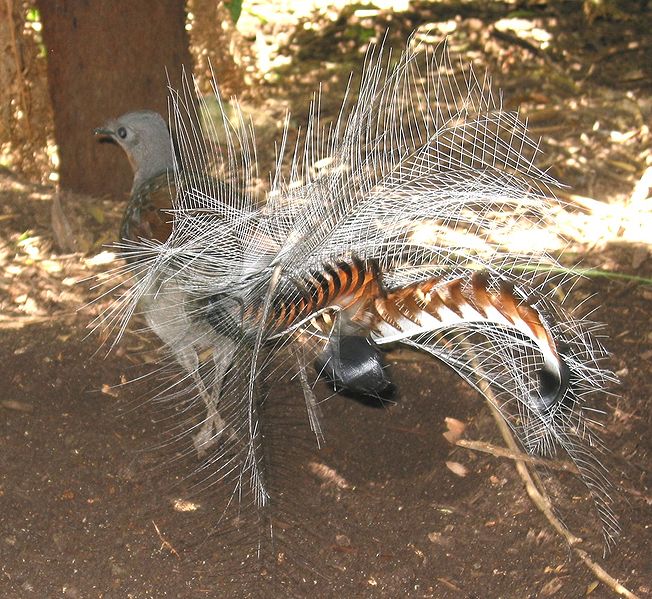Please note: Osher Rainforest will be closed for maintenance Jan. 14–16.
Science News
Lucky Birds
June 11, 2013
by Molly Michelson

Just like humans, some birds have better luck than others. From city life to dance moves to penises, the natural endowments of birds vary in so many ways! Several recent science publications demonstrate diversity in the bird world, so we thought we’d provide a sampling for you…
A study last week in the Proceedings of the Royal Society B determines that city birds keep much longer hours than their forest-dwelling brethren. Researchers studied European blackbirds (Turdus merula) in different environments in Germany and discovered that the artificial lights and noises of the city mean the blackbirds start their activities earlier in the day and keep on going later in the evening.
In fact, studies in the lab revealed that the city birds’ biological clocks were sped up compared to the forest birds’. And the authors are convinced that birds aren’t the only animals affected by city life. From the abstract:
Urban environments can significantly modify biologically important rhythms in wild organisms.
City dwellers, take note!
Australia’s superb lyrebird males possess some of the most brilliant plumage in the avian world, and researchers have now determined that the feathered creature is also a brilliant song-and-dance bird. Scientists found that the birds have a distinct dance for each of four distinct songs. Wired posted a short video of a male lyrebird strutting its stuff that you have to hear and see to believe!
This mating ritual demonstrates that “the coordination of independently produced repertoires of acoustic and movement signals is not a uniquely human trait,” according to a recent publication in Current Biology.
Maybe the male lyrebirds song-and-dance routine makes up for the fact that these males have no penises. 97% of birds simply lack the organ, using an opening called the cloaca instead. Originally, all birds had penises, but along the evolutionary path, most birds lost them. There are theories for why the organ was no longer needed (lighter for flight, more female control over mates), but the reason is still not known.
However, a new study, also in Current Biology, uncovers the mechanism behind the loss. Researchers compared embryos of the well-endowed Pekin duck (it has a corkscrew penis that can grow the entire length of its body) to those of the cloaca-ed rooster and found that both embryos begin to form penises, but around day eight or nine, the roosters’ stop growing. The scientists determined that one gene, Bmp4, caused the rooster embryo’s penis to stop growing.
Carl Zimmer, writing in the New York Times, explains why this research not only paints a bigger picture of bird evolution, but also illustrates how understanding these genetic mechanisms can help humans, too.
Superb lyrebird image: Melburnian/Wikipedia